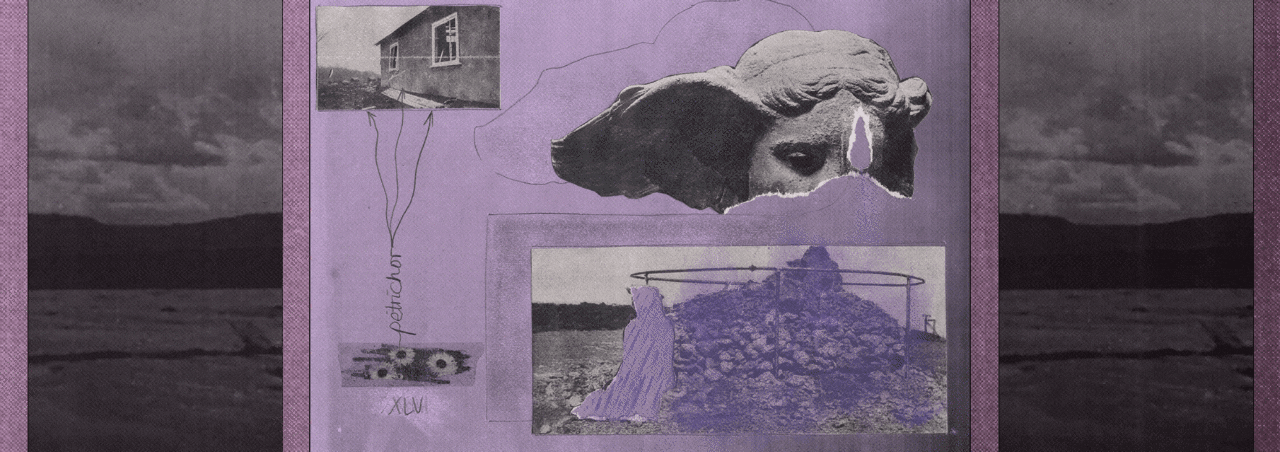The Move to Higher Ground
for Altus, Oklahoma
1.
Altus is a fixed blush at the height of a river,
a higher ground―just us after the flood,
the tall, moist straw phrased a new way.
The halted town is a site moved on from,
a loss soon a junk pile. We became a map
out of this summer’s aching river, a swollen
land of rooms moving out from a center,
the art of lateral correction. For the house
is a sandy shore to the land where it bites in
its families shot with successive roots to hold
the site as compressed quarter sections of home.
For the river set down its share, took the cornerstone
and reset the dust. A courthouse square is rendered
from this, the froth of townsite settling in phases
of nailed wood. Whole buildings were fed to the wound
we have miles from home. A raised sore a story-
and-a-half fighting heavy out of weeds
razors slowly away the tall grass of here.
2.
The Altus Post Office is a field,
a net of nerve routes people walk
from door to door learning the face
as location in half-mile lines.
After a few wires surface the field
drifts off to the north, the east.
Dusty quadrants hang lightmare electric
from the map in tight Newtonian waves.
3.
According to the History of Jackson County,
written in endings vanished ungrown very rapidly,
wind left the fresco a railroad was build into
and out through, as best it shifted the dust
such ways to let us reach it, hold it toward us,
hear it settle. Mirage of a red-dust face turned
north to Martha, northeast to hoof-ripped Warren,
and southeast to Hess in a hum of rays.
4.
The railroad’s mad for cost. Let them see us as money, a write-off.
The way toward town needed a niche, just a site with concessions
stuck to the rails stapling dirt to dirt to here is Altus, a saved town
stung with growover. There is a way home over the ties, a vein to
all of us―us, part of a reservoir at the time we’re determined.
It will not last; that large us is divided into forks. We count the seats
on the bus that drag from the window the streetlights we knew
when we saw eyes lit over a road, teeth hanging the night.
5.
A street is a scene under the house, all to us, closer, and then we leave.
Altus helped herself to a low of shadows, forced down from the sun-washed
recitations of names signed in white against green signs, reaching as cuts
struck dust dribbling over asphalt, a necessary suturing to the present
where we stay moored to undated articles: a room, an avenue, the western prairie.
6.
Well-worn paths lead from ruined wishes of place,
why we hang keys that one day won’t take us
careless on the door. The tender run to a part
of what we believed inexhaustible is a play of water,
evaporation. This is carried in, out of our homes
around town: crayon notch tall as ’88, ’91, Okla.
7.
A board of wood is a part of where we are,
whether we recede our roofs with intent to claw out
or not at the ends of twelfth grade ceremonies.
And our dining rooms neat and attractive
we didn’t eat enough, afraid to say love
at the sawdust shivering a course across
our hand typing for further formed addresses.
The reach of dust is far and gentle.
We set the table shed of it.
8.
As a busting tide of motion levels out the first house we knew,
turning the breakfast table to boards and the nails a vine of rust,
shoesand stained in our socks is all our home saw to let us take.
This is us building stains as we go. A listing of boarded up buildings
is a mapping of root we’ve left below. Say so I made the promise to return,
though now is what we have, what can’t demand of us any backing up.
Where the entirety of our view is a story of papers collecting.
Ryan Clark, an Old Greer County native, writes much of his work through a unique method of homophonic translation. His poetry has most recently appeared in Otoliths, Split Lip Magazine, Found Poetry Review, and Aufgabe. His first book, How I Pitched the First Curve, is forthcoming from Lit Fest Press. He is an Assistant Professor of Creative Writing at Waldorf University.
BACK
